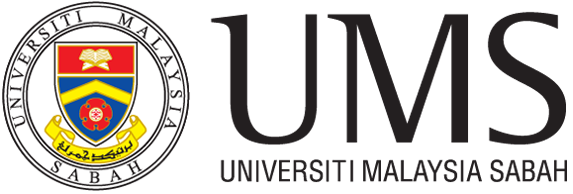Part 4 Challenges in Online PBL
Although problem-based learning (PBL) has proven effective, it can pose challenges for educators and learners. Some of the significant challenges include difficulties in creating relevant problems, ensuring student engagement, and assessing learning outcomes effectively. These are some challenges should carefully studied when implementing OPBL in curriculum.
- Initial Student Resistance: Students accustomed to traditional lecture-based approaches may initially resist the shift to PBL. Some students may feel uncomfortable with the ambiguity and lack of explicit direction that often characterizes PBL.
- Unequal Participation: PBL is an instructional approach that emphasizes the development of critical thinking, problem-solving, and collaboration skills among students. However, in a collaborative learning environment like PBL, unequal participation can occur, where some students may dominate discussions while others remain passive. This can lead to an uneven workload distribution and hinder the overall effectiveness of the learning experience for all students involved. Therefore, educators must establish clear expectations and guidelines for collaboration, provide opportunities for equal participation, and support students in their efforts to work together effectively.
- Assessment Issues: In the PBL approach, traditional assessment methods may not be the most effective means of evaluating students’ progress. This is because assessing skills such as collaboration, problem-solving, and the practical application of knowledge can be challenging. Furthermore, evaluating individual contributions within a group setting can be complicated and may pose a significant concern for educators. As a result, finding fair and reliable ways to evaluate students’ performance and contributions is crucial to ensure that everyone is held accountable for their work and progress.
- Resource Intensity: Implementing PBL can be pretty demanding in terms of resources. It involves meticulous planning, the creation of meaningful and genuine challenges, and continuous guidance by educators. Unfortunately, some educational institutions may find it challenging to implement PBL in their curriculum due to limited resources and time constraints.
- Facilitator Skill and Training: PBL is a teaching approach that emphasizes the importance of facilitators who are pivotal in guiding the learning process instead of traditional lecturers. Facilitators need to possess a particular set of skills that make them effective in their role. These skills include managing group dynamics, providing timely feedback, and encouraging critical thinking. To become proficient in facilitating PBL sessions, facilitators may require specific training that equips them with the necessary skills and knowledge.
- Time Management: PBL is an instructional approach that involves a hands-on, student-centered approach to learning. This methodology often requires more time than traditional instructional methods, as students need ample time to explore complex problems, conduct research, and collaborate with their peers on possible solutions. However, implementing PBL within a fixed academic schedule can be challenging, as it requires a significant amount of time and resources to ensure that students have the necessary support and guidance to engage with the learning process fully.
- Difficulty in Assessing Soft Skills: PBL is an approach to education that focuses on developing subject-specific knowledge and crucial soft skills, such as teamwork, communication, and problem-solving. However, assessing and measuring these skills can be challenging and subjective, especially compared to traditional knowledge-based assessments. It requires educators to use various evaluation methods beyond just testing a student’s knowledge and instead focus on their ability to apply their learning in real-world scenarios.
- Need for Adequate Preparation: Students and facilitators require adequate preparation to ensure success in a PBL environment. Students may encounter difficulties if they need more foundational knowledge or problem-solving skills. Facilitators, on the other hand, must be well-equipped and prepared to guide the learning process effectively. Their ability to provide practical guidance and support can be critical in helping students develop the necessary skills and knowledge to succeed in a PBL environment.
- Limited Applicability in Certain Subjects: PBL is an innovative education approach involving students working on real-world problems and challenges. While this pedagogical method has gained popularity recently, it may only be well-suited for some subjects or topics. Specific disciplines may find it challenging to integrate authentic problems into their curricula, thereby limiting the applicability of PBL across different educational domains.
- Technology Limitations: Technology limitations can significantly impact the effectiveness of PBL through online platforms. Some key challenges include the inability to effectively teach and assess practical skills, such as psychomotor skills, which are crucial in many disciplines like medical and dental education. Additionally, the lack of immediate feedback during online lectures can make it difficult for teachers to assess student understanding. Furthermore, online learning can be more resource-intensive, requiring additional technology, software, and support. Students’ attention span during online learning is often shorter than in face-to-face sessions, which may negatively impact their learning experience. Some students may be less actively involved in OPBL as they find face-to-face learning more engaging. Moreover, the lack of physical presence in OPBL can lead to lower motivation and poor concentration among students.
What about those who argue that OPBL does not allow for the same collaboration and teamwork as traditional in-person PBL? Despite the inherent challenges involved with OPBL, a growing number of educators have realized that the numerous benefits of this approach far outweigh the difficulties they may encounter. These advantages include, among others, the ability to foster improved critical thinking and problem-solving skills amongst students and increased levels of student engagement and participation in the learning process. To effectively overcome these challenges, educators must carefully and thoroughly plan, provide ongoing support and guidance to their students, and remain committed to continuous improvement in implementing PBL practices. Providing students with technological tool enhancements can significantly improve their performance in online project-based learning, especially in abstract subjects such as physics.

